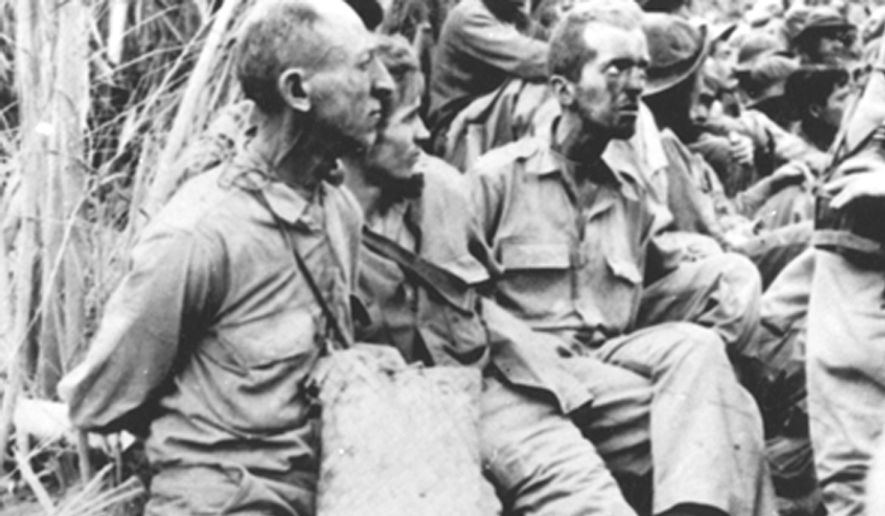World War II airman Jesse Baltazar survived the Bataan Death March in 1942. On Tuesday he finally received his Purple Heart.
Due to lost records it took over seven decades for the veteran of the Army’s 71st battalion, now age 94, to be recognized for his wounds.
“This award is 70 years overdue,” Army Chief of Staff Gen. Ray Odierno said at Joint Base Myer-Henderson Hall, Virginia, Stars and Stripes reported Monday. “It’s important for all of us who have worn the uniform of the United States Army [to] ensure that those who have earned awards through their service be recognized, especially those who have served with distinction and sacrificed selflessly for this great nation of ours,” he added.
Mr. Baltazar joined the U.S. Armed Forces Far East (USAFFE) in 1941 after the Japanese bombed Pearl Harbor and threatened to invade his native Philippines, the newspaper reported. His camp was bombed on March 15, 1942, at which time he suffered shrapnel wounds to his leg.
“I’m very grateful that finally I got it, and that all the members of my family were here today to witness it,” the veteran told reporters, according to Stars and Stripes. “I’m sure they’ll never forget it, and they can pass [the story and the medal] on to the next generation.”
Roughly 12,000 American POWs marched 65 miles over sweltering jungle roads during the Bataan Death March. They had little food or water over the course of six days, and many were executed — sometimes just for stopping to relieve themselves.
“Some of the guards made a sport of hurting or killing the POWs. The Marchers were beaten with rifle butts, shot or bayoneted without reason. Most of the POWs got rid of their helmets because some … Japanese soldiers on passing trucks hit them with rifle butts. Some enemy soldiers savagely toyed with POWs by dragging them behind trucks with a rope around the neck,” the National Museum of the U.S. Air Force says on its website. “Japanese guards also gave the POWs the ’sun treatment’ by making them sit in the sweltering heat of the direct sun for hours at a time without shade.”
Historian Larry Schweikart said in his 2007 book “A Patriot’s History of the United States” that some U.S. soldiers were even tied to barbed wire to be eaten by ants.
“The Bataan Death March revealed the Japanese to be every bit as vicious as the Nazis,” Mr. Schweikart said.
Mr. Baltazar was discharged from the Army after World War II. He then moved to the United States and received an Air Force commission in 1948. The veteran was the first native-born Filipino to join that service, Stars and Stripes reported.
• Douglas Ernst can be reached at dernst@washingtontimes.com.




Please read our comment policy before commenting.